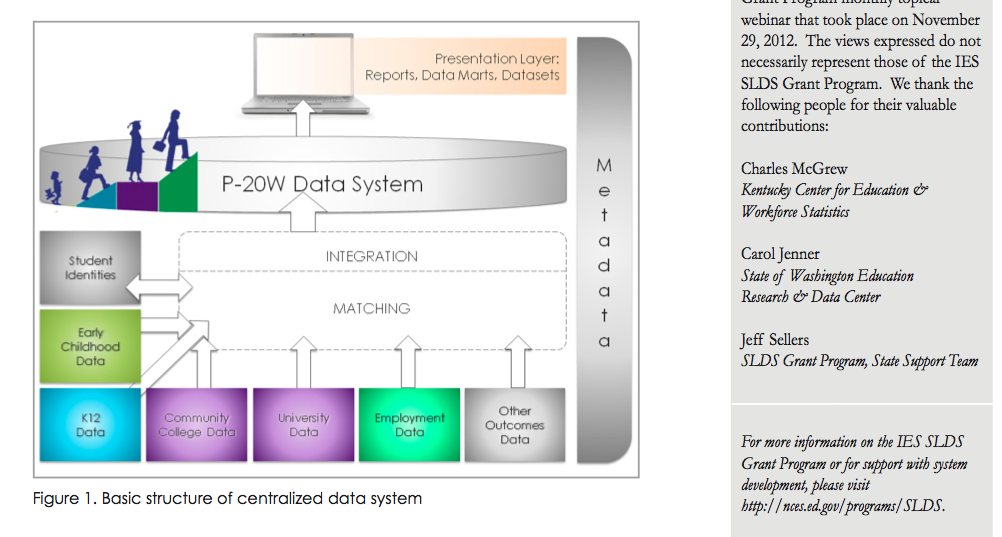Parents Need to Know Their Rights Under FERPA
Parents currently still have some rights. These three are extremely important to protecting your child’s data RIGHT NOW. You have the right:
- to know what your district and your state has designated as “Directory Information” (see explanation below).
- to request all records for review, inspection, and request they be amended if need be (mistakes happen). AND,
- (still in law but rendered MEANINGLESS) to be notified annually of your rights under the law PLUS notification of any release of directory information. (Unfortunately, the law is “met” by simply putting the notification somewhere on a districts website. Our lawmakers must change that.)
What FERPA Is & Why It Needs To Be Restored
Here’s a little background on FERPA.
The Family Educational Rights and Privacy Act (FERPA) is a 1974 federal law. Over time, multiple changes were made. Those made in December of 2008 and December 2, 2011 are the problems in need of fixing.
The original congressional intent was to protect student privacy by protecting their personal information.
It prohibited disclosure of a student’s personally identifiable information (‘‘PII’’) without parental consent.
Your district is obligated to tell you what “Directory Information” they release without your knowledge or consent.
Anything your district has designated as “Directory Information” means they don’t see DISCLOSURE of this information as an invasion of privacy. You need to take a look because the federal law does not limit that information to…
the student’s name; address; telephone listing; electronic mail address; photograph; date and place of birth; major field of study; grade level; enrollment status (e.g., undergraduate or graduate, full-time or part-time); dates of attendance; participation in officially recognized activities and sports; weight and height of members of athletic teams; degrees, honors, and awards received; and the most recent educational agency or institution attended.
AND Personally Identifiable Information (PII) includes, but is not limited to—
- The student’s name;
- The name of the student’s parent or other family members;
- The address of the student or student’s family;
- A personal identifier, such as the student’s social security number, student number, or biometric record;
- Other indirect identifiers, such as the student’s date of birth, place of birth, and mother’s maiden name;
- Other information that, alone or in combination, is linked or linkable to a specific student that would allow a reasonable person in the school community, who does not have personal knowledge of the relevant circumstances, to identify the student with reasonable certainty; or
- Information requested by a person who the educational agency or institution reasonably believes knows the identity of the student to whom the education record relates.
Bottom line: Contact Your Representatives Today! Ask that FERPA be restored. Because….
“Under certain conditions, the new regulations allow broader access to PII [personally identifiable information].” John Moran, Principle Analyst, Office of Legislative Research
There are 16 conditions listed under which NO PRIOR CONSENT IS NEEDED
Many are legitimate reasons for records requests. But that doesn’t mean the need for consent shouldn’t be reinstated. And two of the “conditions” totally open the data floodgates:
- (1)(B) A contractor, consultant, volunteer, or other party to whom an agency or institution has outsourced institutional services or functions may be considered a school official under this paragraph…
- (6)(i) The disclosure is to organizations conducting studies for, or on behalf of, educational agencies or institutions to (A) Develop, validate, or administer predictive tests; (B) Administer student aid programs; or (C) Improve instruction.
The data is flowing! So how do we protect student privacy? Contact Your Representatives Today! Demand they restore FERPA. Demand they stop the centralization of data.

The Story Behind HOW PARENTAL CONSENT BECAME MEANINGLESS
Here is what happened: The 2011 changes supported the federal push for statewide longitudinal data systems (SLDS) and the “effective use of data.” These two acts of Congress “justified” the changes.
- American Recovery and Reinvestment Act of 2009 (ARRA)(Bush signed, January 6, 2009). (Education details to state governors, May 21, 2012.)
- America Creating Opportunities to Meaningfully Promote Excellence in Technology, Education, and Science Act (COMPETES Act) (Obama signed, January 4, 2011.)
With respect to public preschool through grade 12 education, COMPETES required the SLDS (State Longitudinal Data Systems) to include:
(a) Yearly test records of individual students with respect to assessments according to No Child Left Behind (now ESSA/NCLB 2.0);
(b) information on students not tested by grade and subject;
(c) a teacher identifier system with the ability to match teachers to students;
(d) student-level transcript information, including information on courses completed and grades earned; and
(e) student-level college readiness test scores. (Federal Register/ Vol. 76, No. 68 / Friday, April 8, 2011 / Proposed Rules, Page 2, paragraph 2)
A personal identifier is required to follow the student from preschool to college-ready testing … and beyond.
Now, because of our rapid acceptance of the coupling of education to workforce development (evidenced by college and career readiness?), the corresponding data systems are keeping records on students from pre-K to career (P-20W, “career” being Workforce). This means your child’s “private” data can be studied by private providers for decades. Contact Your Representatives Today! Ask them to review and restore FERPA.
 Obama’s Department of Education determined that the Bush-era changes to FERPA supported the data system (SLDS) in the following ways:
Obama’s Department of Education determined that the Bush-era changes to FERPA supported the data system (SLDS) in the following ways:
- Expanding “redisclosure” by permitting officials to make further disclosures of personally identifiable information (PII) without the consent of parents or eligible students, under “specified conditions.”
- Permitting officials to record their redisclosures only by group, at the time they are made, and only requiring them to send these records of redisclosure upon the request of an educational agency or institution.
Definitions Become Important
“Educational agency or institution” now includes public or private agency or institution.
And previously, Congress had not define the term “authorized representative.” Now,…
Authorized representative means any entity or individual designated by a State or local educational authority …—with respect to Federal- or State-supported education programs—any audit or evaluation, or any compliance or enforcement activity in connection with Federal legal requirements that relate to these programs.
FERPA does not require that an authorized representative be under the educational authority’s direct control in order to receive PII for purposes of enforcement, audit OR evaluation.

The Obama administration stated that, “there is no reason why a State health and human services or labor department” can’t be “the authorized representative and receiving non-consensual disclosures of PII to link education, workforce, health, family services, and other data…” for evaluating, auditing, or enforcing Federal or State supported education programs.
Education program means any program that is principally engaged in the provision of education, including, but not limited to, early childhood education, elementary and secondary education, postsecondary education, special education, job training, career and technical education, and adult education, and any program that is administered by an educational agency or institution.
ALL Federal or State supported education programs being “evaluated” for “success” have access to PII information from cradle to career (Workforce) without parental consent.
In a privatized education system, there are a slew of private providers having access to PII (personal identifiable information). — Privacy? Not in this system. —
FERPA will only be restored if WE TAKE ACTIONS to push Congress to Protect Our Children’s Data.
Contact Your Representatives Today!